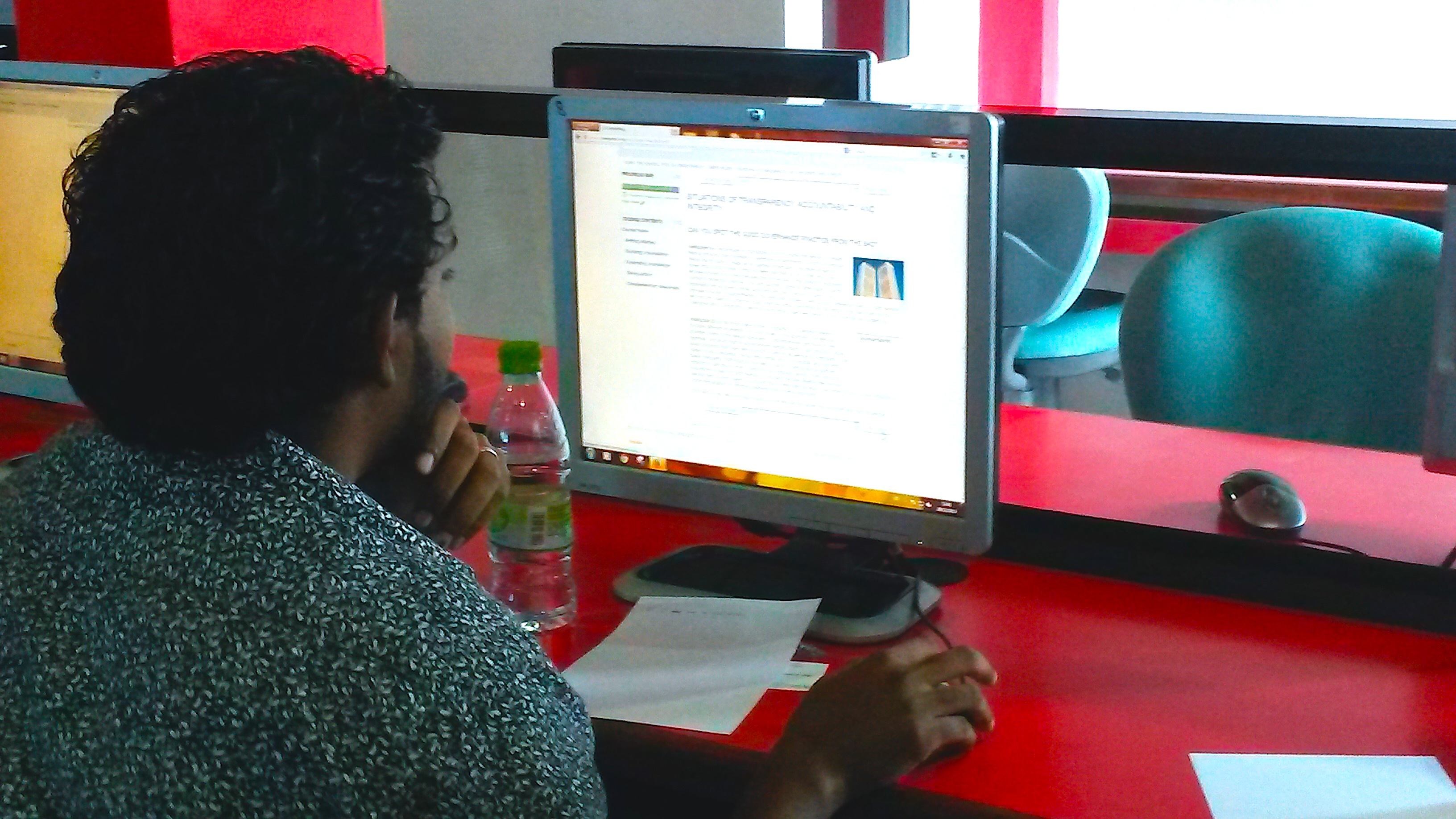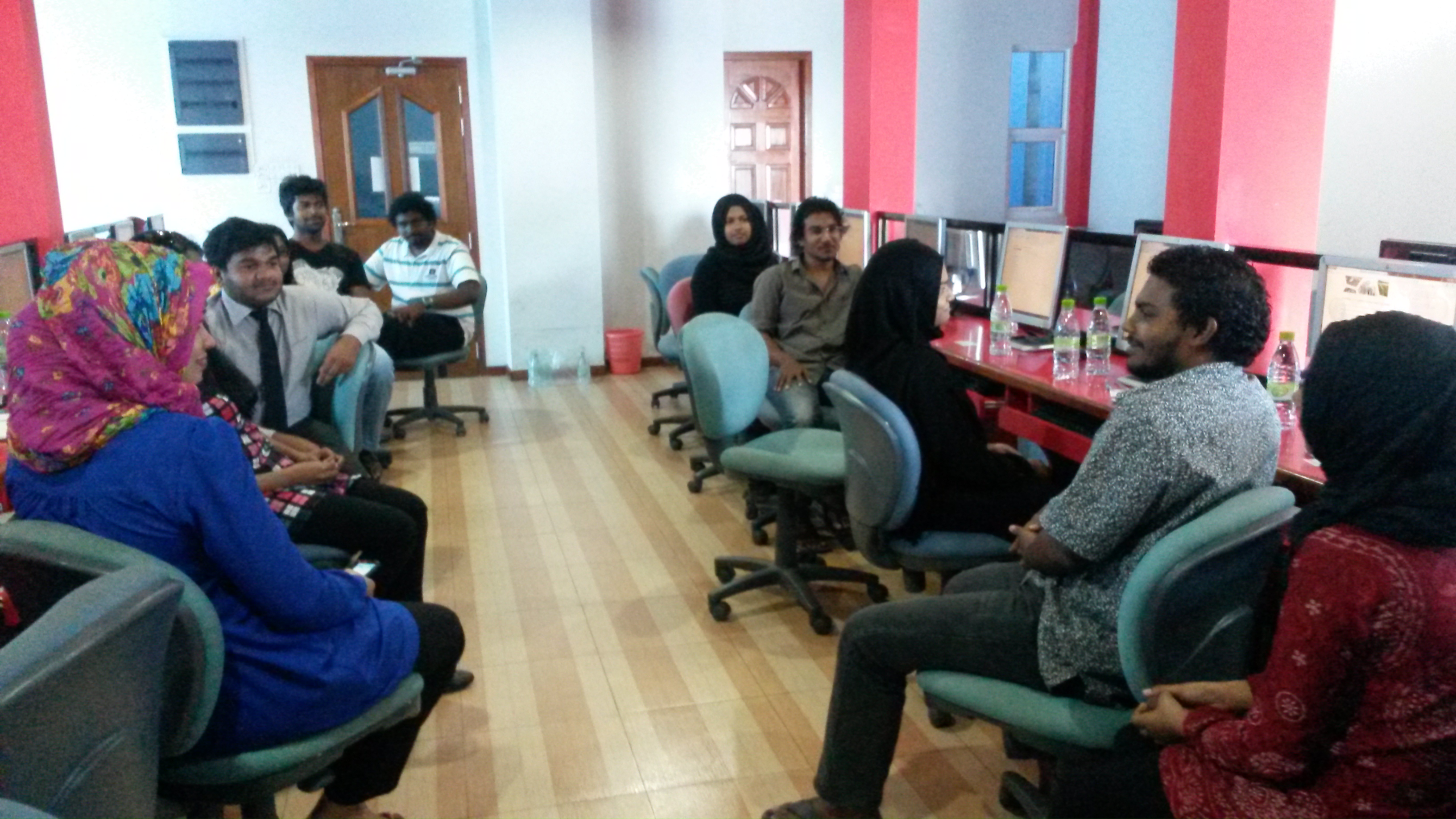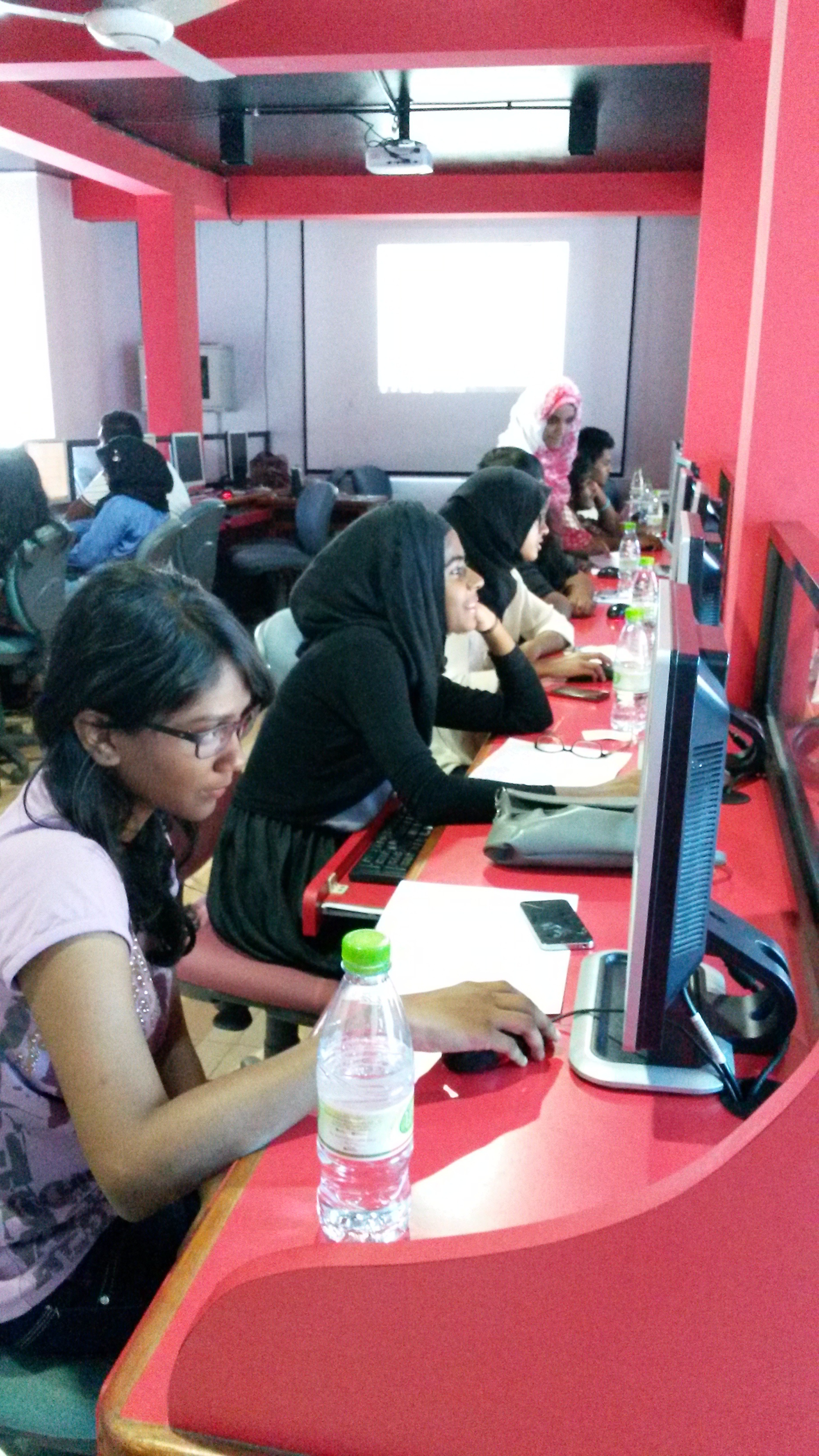The lack of knowledge in the fast evolving landscape of global climate finance was evident in recent public sessions organized by Transparency Maldives, despite the image of Maldives as the poster child of climate change impacts in the global media. These sessions were held to increase participation of the general public in an e-learning course that was developed by Transparency International, with the purpose of spreading awareness of corruption risks in climate finance. The online course, designed for the general public, can be completed at the individual’s own pace.
Transparency Maldives conducted four sessions in December 2013 to guide interested participants through the course. The sessions allowed discussions, exchange of knowledge and opinions. Participants were given information on the main findings from the recent research by Transparency Maldives on climate finance issues in the Maldives.
Special invitations were also extended to the students of BSc in Environmental Sciences at the Maldives National University, staff of relevant government offices and participants of the Youth Leadership Program, organized by Democracy House, a local NGO. A total of 33 participants participated in four sessions held in December 2013. An additional 29 persons had signed up for the e-learning course directly.

Student of BSc in Environmental Sciences, Maldives National University. The course builds on technical knowledge of the students to complement practical challenges of implementation
The structure of the course and its presentation helped participants from diverse backgrounds and levels of technical knowledge, follow the discussions and complete the course.
Commenting on the main take-away of the course, Malaka Abdul Hameed, Senior Planning Officer of the Ministry of Tourism said, “I learnt a lot about the different forms of corruption and how it impacts climate finance governance.
”The course contains three modules. The first module is an Introduction to Climate Finance.This contains a brief background to causes and impacts of climate change and how different countries respond. The module then goes on to explore the sources of climate finance and how these funds are currently channeled to the affected countries.

The mix of graduate students and government staff allowed lively discussions and exchange of experiences
The second is Corruption Risks and Solutions. It includes introduction to types of corruption and provides real stories of how climate finance has been affected by corruption.
This combination of topics makes the course useful for those who are learning about the issues, working in implementing or monitoring these projects, or those interested in ensuring climate sustainability.
“In my opinion, the biggest challenge to ensuring climate finance transparency, is the lack of availability of relevant information,” Haleemath Layan Abdulla, aged 16, a participant of the e-learning course said.
The course also includes a discussion forum, where participants may network, post comments and thoughts on the issues covered.
The course is available to any interested person to sign up. Please contact TM if you have any queries or wish to organize sessions.
The course was developed as part of the Climate Finance Integrity Program, a research and advocacy program conducted by 6 chapters and TI-S to assess risks to Climate Finance. The CFIP program was funded by the German Ministry of Environment.
